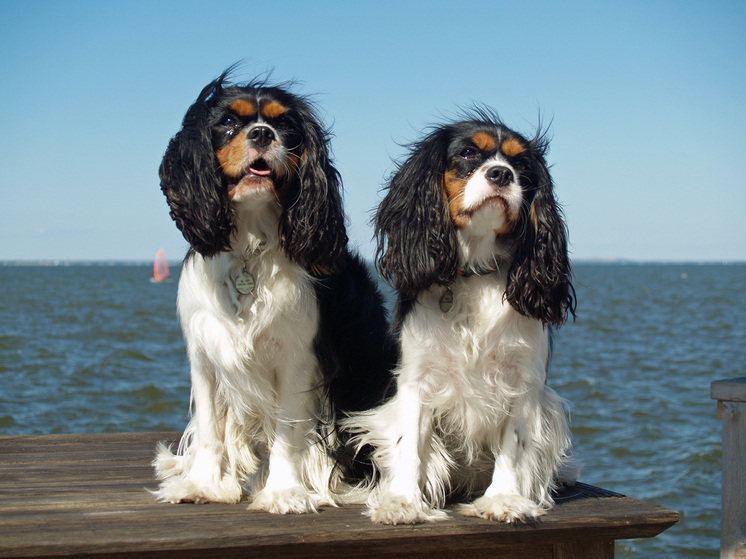Professor Clare Rusbridge calls for careful crossbreeding to introduce new genetic material
Dog breeds need to be “rebooted” through careful crossbreeding to rid them of entrenched problems with cancer, a leading expert says. health.

Many dog breeds, from French bulldogs with spinal and respiratory problems to Cavalier King Charles spaniels with skull defects and heart problems, are susceptible to specific diseases, writes The Guardian.
Although efforts have been made to develop healthier purebred dogs by identifying problem traits, this approach has its limits.
Claire Rusbridge, professor of veterinary neurology at the University of Surrey, said many diseases arise from… for a complex set of genetic variants, while the gene pool of breeds is often so small that there are simply not enough unaffected individuals to reproduce.
“Decisions must be made about allowing new genetic material,”, she said.
“A decision must be made about whether new genetic material will be allowed in,”, she said.
p>
An example, Rusbridge said, is the Cavalier King Charles Spaniel, a breed that often has a spinal condition called syringomyelia—a painful condition called Chiari malformation that occurs when the skull is too small for the brain—and problems with heart.
“By the age of 10, they all develop a heart murmur, and most of them die from mitral valve disease,” said Professor Rusbridge.
The concerns were so great that in 2022, the Norwegian Supreme Court banned the breeding of the Cavalier King Charles Spaniel.
While scientists have discovered Cavalier King Charles Spaniels with genetic variants that protect them from myxomatous mitral valve disease, Rusbridge said their rarity means it would be more productive to cross them with other breeds that have protective variants to produce dogs with better health. The offspring could then be crossed back into the original breed.
«The reality is that it doesn't take much crossbreeding before you get a dog that looks like the original,» Professor Rusbridge said.
She is adamant that this approach does not mean abandoning beloved dog breeds or creating designer mutts. Instead, the idea is to preserve them. «Reboot the breed,» she said.
It is critical, Rusbridge adds, that such efforts include establishing crossbreeding registries and finding a way for subsequent generations to be registered as purebreds of the original breed.
This approach has already been adopted in several Northern countries. Europe, and Finland has launched separate outcrossing projects for the Cavalier King Charles Spaniel and French Bulldog.
“In total, there have been or are currently ongoing more than 10 official crossbreeding projects in Finland,” Kaisa Gold, secretary of the scientific committee of the Finnish Kennel Club.
Lena Gillstedt, a breeder involved in the Swedish Cavalier King Charles Spaniel Club's outcrossing project, said: “Of course, there are breeders who are skeptical and even negative. But overall, the consensus among breeders was very high.”
She added that six litters have been born so far, with more on the way.
But not everyone is convinced. , notes The Guardian.
Michael Levy, chairman of the British Cavalier King Charles Spaniel Club, said that while the organization had watched such efforts with interest, they «do not currently see this as a solution to some of the health problems facing our popular breed.» ;.
He added: “As with any breeding, selection is of paramount importance and health is always a priority in such selections. All dog breeding clubs conduct and encourage health testing.
Levy said his club strongly advocates for breeders to test their dogs' DNA for myxomatous mitral valve disease, while a new scheme aimed at reducing the prevalence of syringomyelia will soon begin.
The British Kennel Club said it had accepted outcrossing projects similar to Finnish ones for various breeds over the years, although none included French Bulldogs or Cavalier King Charles Spaniels, and they had a path to return to pedigree status.
But Dr Joanna Ilska, head of genetic research at the Kennel Club, said strong evidence and a plan of action were needed to maximize the chances of health benefits from outcrossing and ensure the improvements were successfully spread throughout the breed.
“We continue to encourage breeders to have their dogs medically assessed before deciding to breed, and the Kennel Club has developed a range of tools that not only help breeders make responsible decisions, but also collect data that is vital to future actions and decisions to protect the health of dogs,» she said.
Professor Rusbridge said a more proactive approach was needed, noting that currently kennel clubs should promote outcrossing projects with the Kennel Club. “Attitudes around the world need to change about dogs,” she said.


